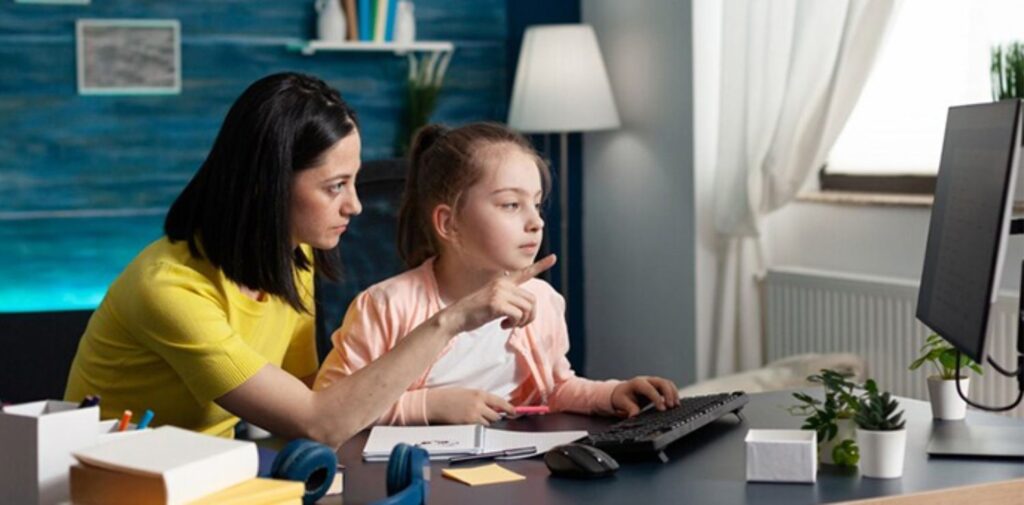Education plays a key role in shaping a child’s future, but it’s not just what happens in school that matters. The home environment is equally important in fostering good study habits. Many parents want their children to excel academically, but sometimes the atmosphere at home can be a challenge. It’s crucial for parents to understand that creating an environment of discipline is essential if they want their children to focus on their studies. Expecting children to study while parents watch movies or engage in distractions isn’t fair or effective. Let’s explore why parents need to set an example and how they can create a disciplined environment at Home for their children.
Why Home Environment Matters
A child’s ability to concentrate and develop strong study habits is greatly influenced by their surroundings. The environment at home is where they spend a significant amount of time, and it can either support or hinder their learning. If the household is noisy, filled with distractions like TV, music, or constant socializing, it becomes difficult for children to focus. When parents ask their children to study in such an environment while they themselves are engaged in leisure activities, the child may feel frustrated or confused about what is expected of them.
Children learn by observing their parents. If they see their parents relaxing and having fun while expecting them to concentrate on their studies, they may not take studying seriously. A disciplined environment, on the other hand, teaches children the importance of focus, time management, and the value of education.

Lead by Example
One of the most effective ways for parents to instill discipline in their children is by setting a good example. Children are more likely to follow their parents’ actions than their words. If parents expect their children to dedicate time to studying, they should also demonstrate responsible behavior.
For example, if study time is scheduled in the evening, parents can use that time to engage in productive activities such as reading, working on household chores, or even doing their own work. By doing this, they send a clear message to their children that focus and discipline are important for everyone in the family, not just for the children.
On the other hand, if parents spend study time watching TV or playing games, it gives children the impression that studying is not as important. This creates a double standard and can lead to children becoming resentful or rebellious.
Create a Structured Routine
A key aspect of discipline is consistency, and having a structured daily routine can help children develop better study habits. When there is a clear routine in place, children know what is expected of them and when they are supposed to study. This reduces confusion and procrastination.
Parents should work with their children to set up a daily schedule that includes time for studying, breaks, meals, and relaxation. For younger children, parents may need to guide them more closely, while older children can be encouraged to take responsibility for managing their time.
It’s also important for parents to stick to the routine themselves. If study time starts at 6 p.m., the entire family should respect that time. This doesn’t mean that parents need to study too, but they should avoid doing things that could distract their children, such as watching TV in the same room or having loud conversations.
Minimize Distractions
In today’s world, distractions are everywhere, from smartphones to social media, video games, and television. While it’s unrealistic to eliminate all distractions completely, parents can take steps to minimize them during study time. This might mean turning off the TV, setting limits on phone usage, or creating a quiet space where children can focus on their work.
It’s also important for parents to be mindful of their own use of technology during study time. If children see their parents constantly checking their phones or scrolling through social media, they may feel tempted to do the same. By setting a good example and minimizing distractions, parents can help their children stay focused.

Encourage Breaks and Balance
While it’s important to have a structured routine, balance is equally crucial. Children need breaks to recharge and relax, especially when studying for long periods. Encouraging short breaks can prevent burnout and keep children motivated.
Parents should encourage their children to take breaks after a set amount of study time, such as 45 minutes or an hour. These breaks should be used for activities that help them refresh their minds, like taking a walk, playing a quick game, or simply relaxing.
During break times, parents can join in on some relaxing activities. This also shows that while studying is important, it’s okay to take time to relax and unwind as long as it’s done in moderation.
Praise and Encouragement
Creating a disciplined environment doesn’t mean being overly strict or controlling. Positive reinforcement goes a long way in encouraging children to develop good study habits. Parents should acknowledge their children’s efforts and progress, even when they don’t achieve perfect results.
Praise and encouragement help build self-esteem and motivate children to keep trying. It’s also important for parents to be patient and understanding when their children struggle. Every child learns at their own pace, and it’s normal to face challenges along the way.
Instead of focusing solely on outcomes like grades or test scores, parents should focus on the process. Celebrate the fact that your child is dedicating time to their studies, staying disciplined, and making an effort to improve.

Communication Is Key
Open communication between parents and children is essential when it comes to building a disciplined environment. Children should feel comfortable discussing their struggles or frustrations with their parents. If a child is having difficulty concentrating, they should be able to express that, and parents should be willing to help them find solutions.
Parents can also involve their children in the process of setting up the study routine and environment. When children feel like they have a say in how things are structured, they are more likely to take ownership of their study time.
The Role of Consistency
Consistency is one of the most important aspects of discipline. If parents want their children to develop strong study habits, they must be consistent in enforcing rules and expectations. It’s not enough to ask children to study one day and then let them off the hook the next. Consistent routines and expectations help children develop a sense of responsibility and accountability.
However, consistency should not be confused with rigidity. Flexibility is important, especially when unexpected situations arise. For instance, if there’s a family event or special occasion, it’s okay to adjust the routine. The key is to maintain a balance between flexibility and discipline.

The Long-Term Benefits of a Disciplined Environment at Home
Creating a disciplined environment at home doesn’t just help children with their studies—it has long-term benefits that extend beyond academics. Discipline teaches children important life skills such as time management, focus, and self-motivation. These skills will serve them well in all areas of life, from their future careers to their personal relationships.
When children grow up in a home where discipline is valued and modeled by their parents, they are more likely to carry those habits into adulthood. They will understand the importance of setting goals, working hard, and staying committed to their responsibilities.
Conclusion
Parents play a crucial role in creating an environment of discipline that supports their children’s education. By leading by example, setting up structured routines, minimizing distractions, and encouraging a healthy balance between study and relaxation, parents can help their children develop strong study habits.
It’s important for parents to be consistent, patient, and supportive throughout the process. Discipline isn’t about being strict; it’s about creating an environment where children can thrive academically and learn valuable life skills. When parents and children work together to establish a disciplined environment at home, the benefits will last a lifetime.




